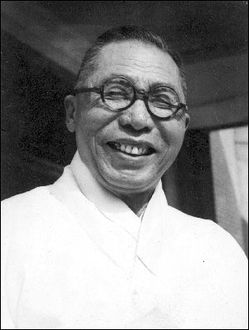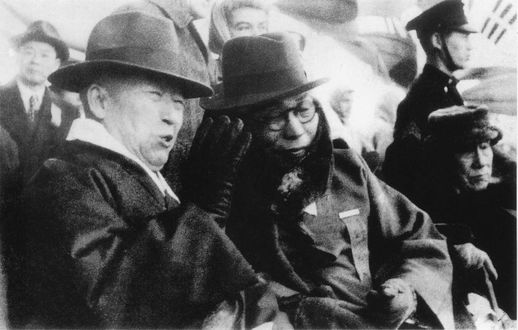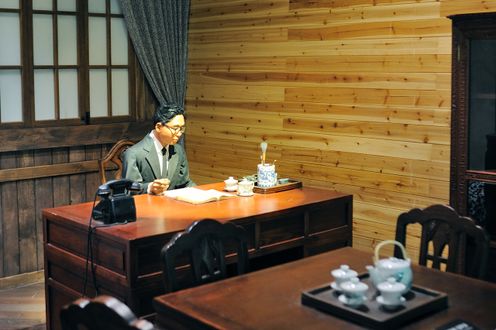Political Leader and Independence Activist, Kim Gu
As an independence activist and politician, Kim Gu (1876 -~1949) was one of leaders in the Korean Provisional Government established in China after 1919. In his youth, he believed in the Cheondo-gyo, a Korean indigenous religion, and stood in the vanguard of the farmer troops during the 1894 Peasant Reform Movement.
Shocked and enraged by the assassination of Queen Min (later Empress Myeongseong) by Japan, Kim Gu killed a Japanese army officer in 1896 at age 21 and was arrested. He was given a death sentence in 1897 but he saved his life by escaping from prison in the following year.
After the Protectorate Treaty was concluded between Joseon and Japan in 1905, Kim Gu established a school in 1907. Having defected to Shanghai after the March 1st Independence Movement in 1919, he joined in the Korean provisional government and became one of cabinet members in 1927. In 1928, he founded the Korean Independence Party with colleagues, and organized an armed patriots’ corps in 1931 to punish top Japanese leaders. He arranged the heroic attacks on Japanese leaders by Lee Bong-chang and Yun Bong-gil in 1932.
Having been inaugurated as the President of Korean Provisional Government in March 1940, he organized the Korean Liberation Army and declared war against Japan in December 1941. While he trained soldiers, Korea was liberated on August 15, 1945.
Korea fell into serious confusion as it was divided into South and North, backed by the United States and the Soviet Union respectively. He wanted to establish a unified independent nation by Korean people without intervention of other countries. He welcomed the United Nations General Assembly resolution of September 1947 to hold a general election in both South and North Korea.
He proposed a joint meeting to the northern leaders for establishing a unified government, but North Korea already established its own army and announced the draft constitution in February 1948. Kim denied the general election conducted on May 10, 1948 in South Korea, and he failed in the first presidential election. The Republic of Korea government was established in the South on August 15, 1948, He still hoped to see a general election in both halves under observation of the United Nations, but was assassinated in June 1949 by a second lieutenant of the army. He remains a symbol of a unified Korea in the minds of the people.


